When it comes to business relationships, sometimes tough decisions must be made, and terminating a supplier can be one of those moments. It's essential to approach this sensitive topic with clarity and professionalism to maintain a positive reputation. In this article, we'll provide you with a comprehensive supplier termination notice template to help you navigate this process smoothly. So, if you're looking to craft a respectful and effective termination letter, keep reading for our expert tips and insights!
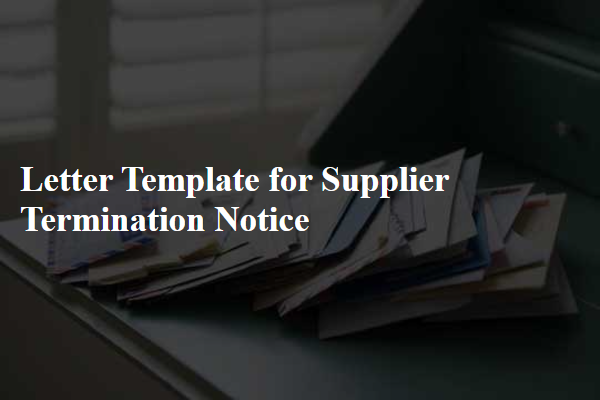
Clear reason for termination
The termination of contract with a supplier can stem from various reasons including consistent delays in delivery, quality issues of products, or lack of communication. Performance metrics often reveal failures in meeting agreed-upon deadlines, such as delivery delays exceeding 30 days. Quality control inspections at receiving docks may show product defect rates surpassing acceptable thresholds, often above 5%. Supplier responsiveness to inquiries over the past three months may have dropped below 70%, impacting collaboration. Consistent failure to fulfill obligations, including delivery errors or subpar products, ultimately leads to the necessity for contract termination, ensuring business continuity and quality standards are upheld.
Specific termination date
Termination notices for suppliers require clarity and conciseness, primarily stating the key elements of the termination process. The specific termination date provides a clear timeline for both parties to adhere to during this transition. For example, informing the supplier of termination effective December 31, 2023, enables the supplier to make necessary arrangements to cease services or deliveries. Additionally, important details surrounding final payments, the return of goods, and the settlement of outstanding invoices must be explicitly outlined to ensure a smooth conclusion of the supplier relationship. Formal language is essential in communicating professionalism throughout this process, as well as adherence to any previously established contractual obligations.
Reference to contract terms
Supplier termination notices often refer to contractual obligations and stipulations. A termination notice should include specifics such as the contract date, the terms under which termination is executed, and the notice period specified within the agreement. Any performance issues or breaches identified should be documented, providing clarity and context to the decision. Reference to legal clauses, such as "termination for convenience," may exhibit adherence to contract terms, demonstrating due diligence in the decision process. Clear communication regarding the return of materials and final settlements is crucial, ensuring both parties understand outstanding obligations and timeliness requirements involved in the termination process.
Instructions for final deliveries
Supplier termination notices require careful attention to detail and professionalism. Important elements include clear identification of the parties involved, the specific contract or agreement being terminated, and the effective date of termination. Instructions for final deliveries should outline the expected timeline, delivery locations, and any required documentation. Additionally, it should include instructions on the return of any remaining goods or outstanding payments. Ensuring clarity can prevent misunderstandings and facilitate a smooth transition as both parties conclude their business relationship.
Contact information for further communication
A supplier termination notice clearly informs vendors about the discontinuation of services while maintaining professionalism. Important elements include the reason for termination, effective date, and adherence to contractual obligations. Providing a detailed contact section ensures efficient communication regarding any outstanding matters. This section typically includes name, phone number, and email address, allowing suppliers to address queries or finalize transactions smoothly. Maintaining clarity in this communication helps facilitate a respectful disengagement process and preserves professional relationships for potential future interactions.

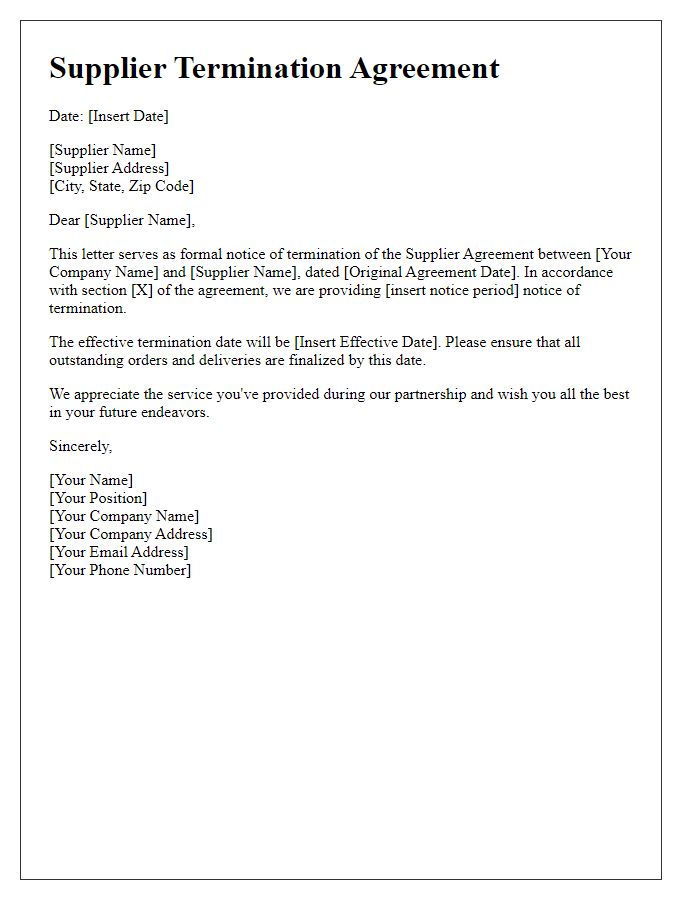
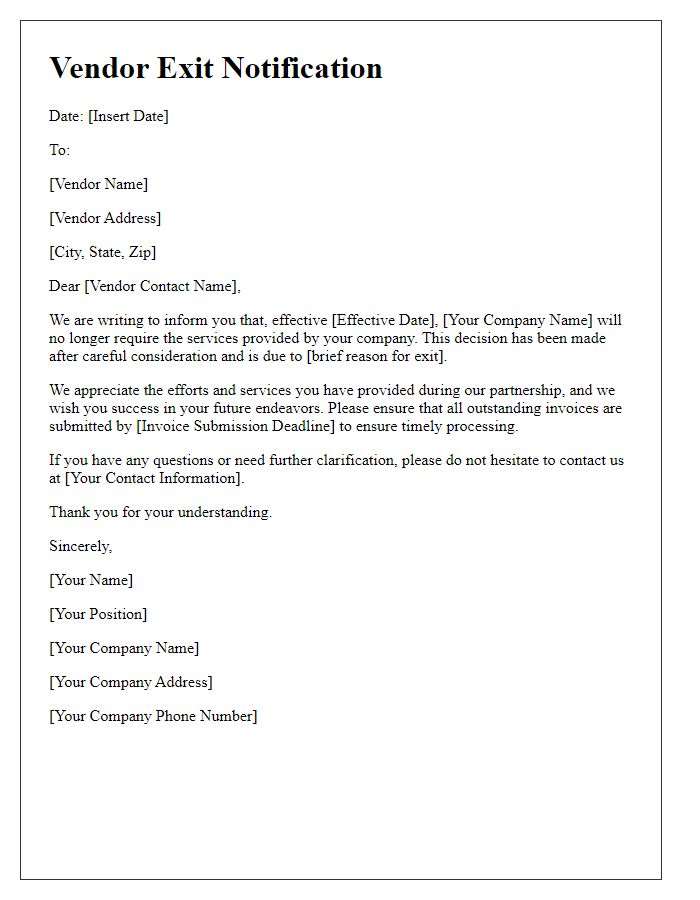
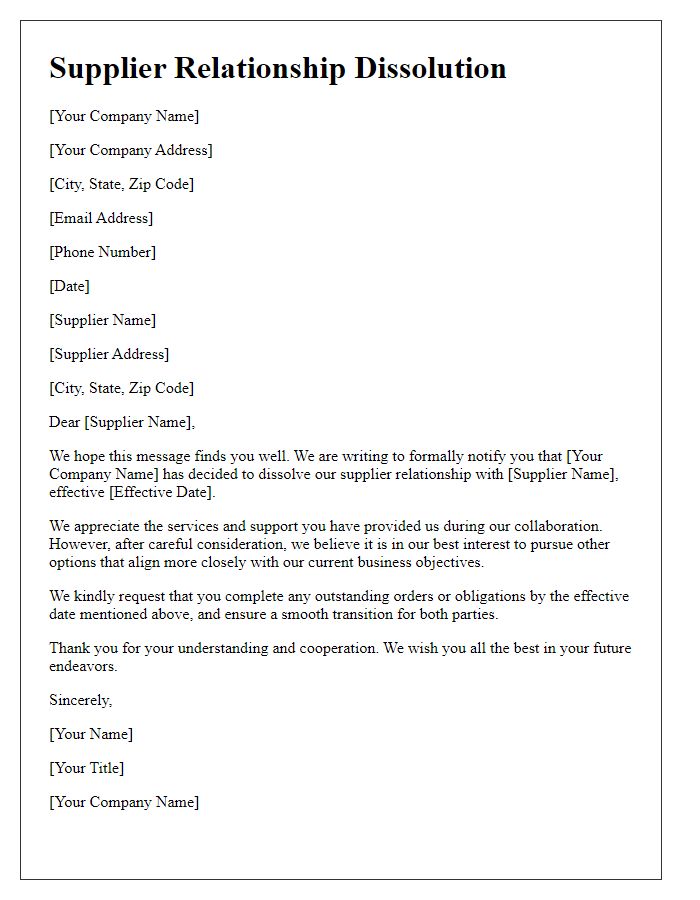
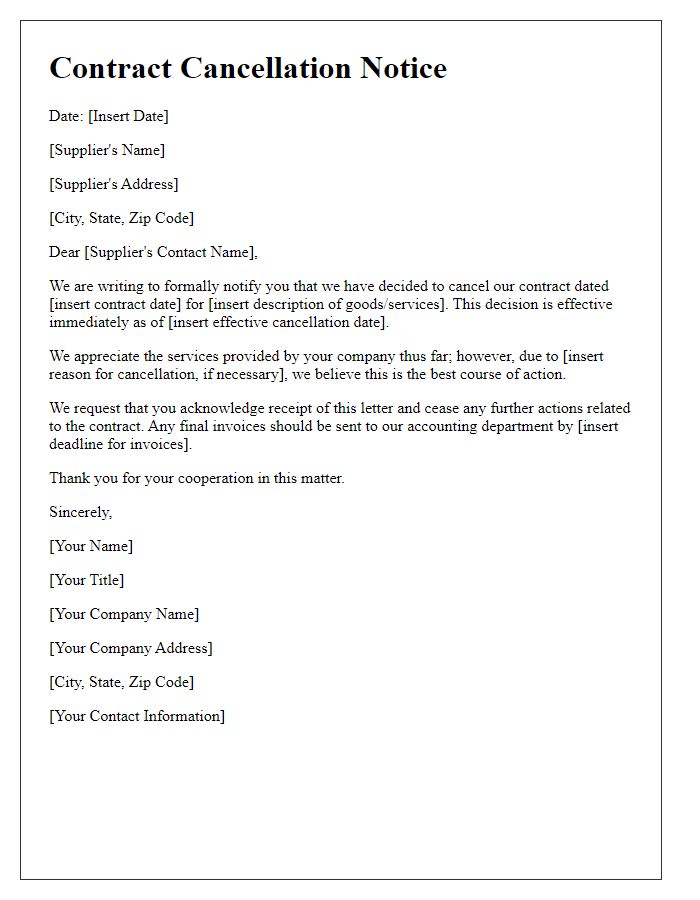
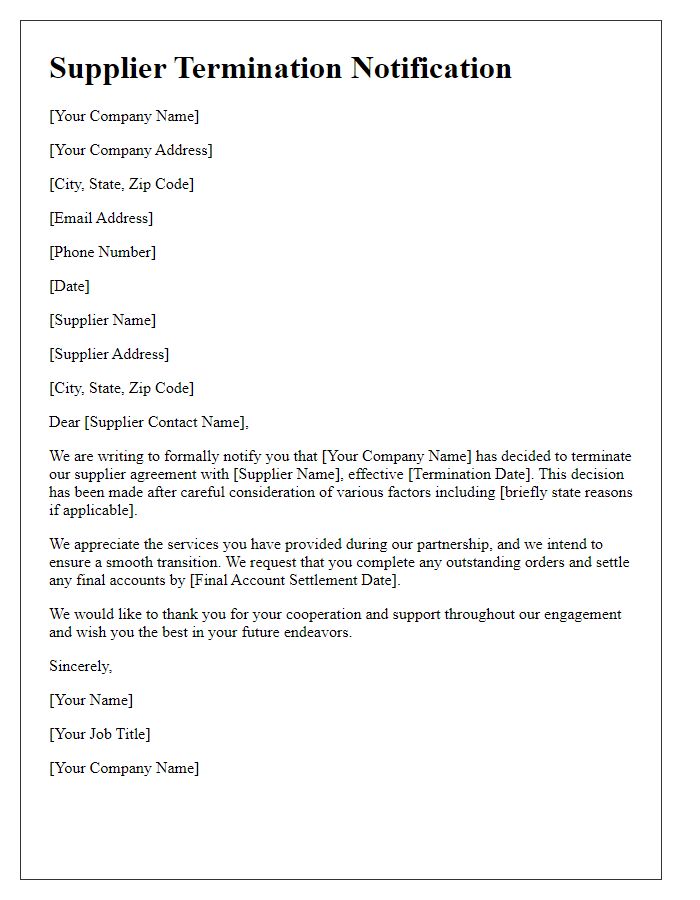
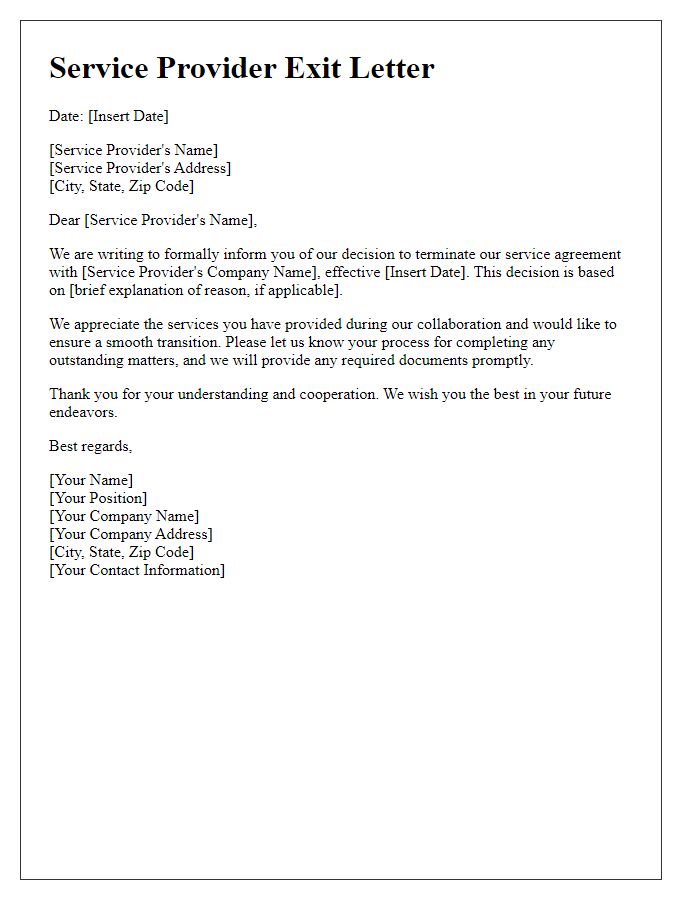
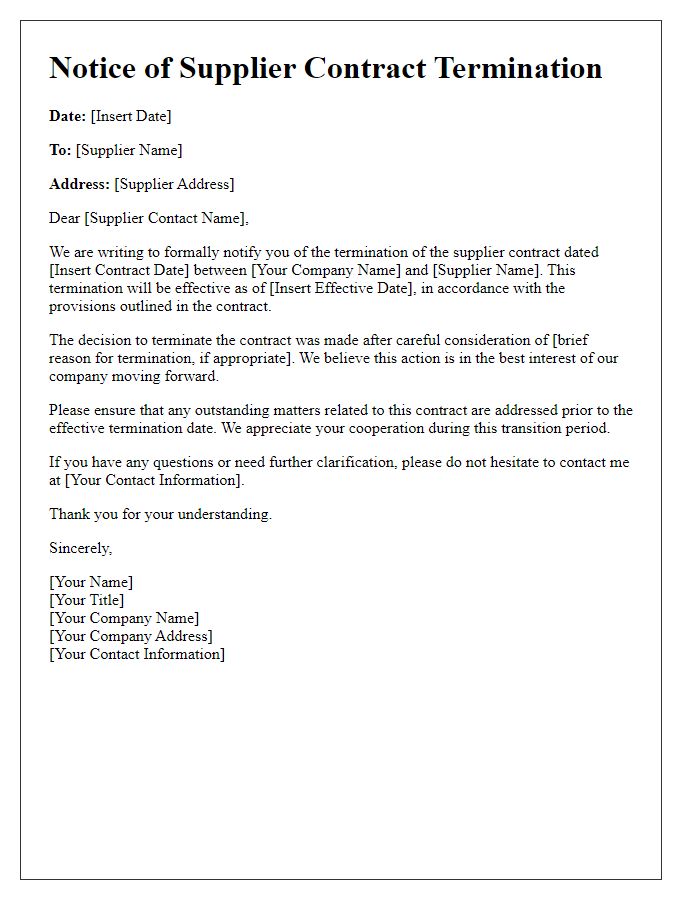
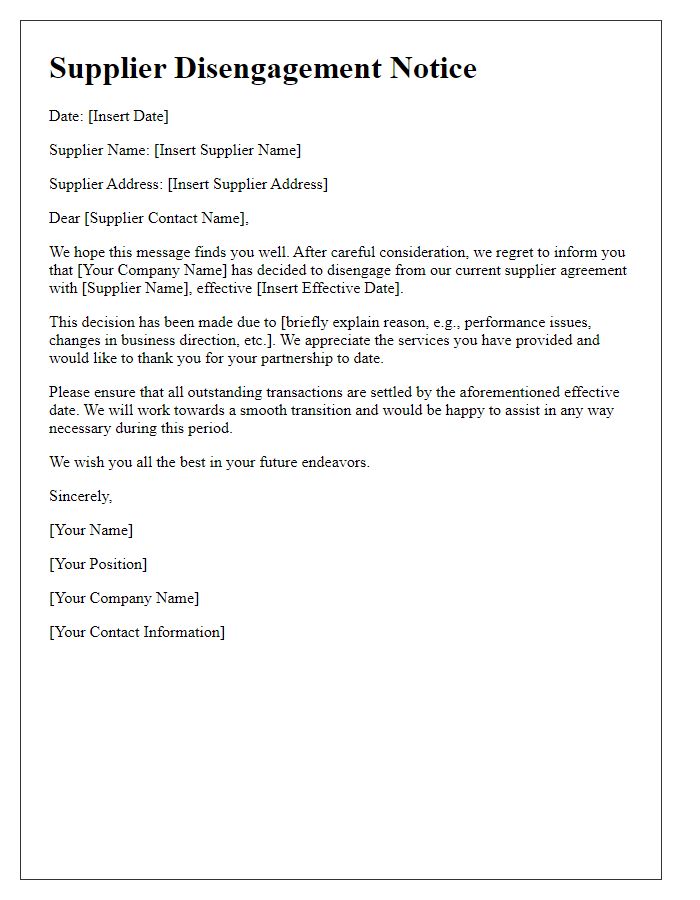
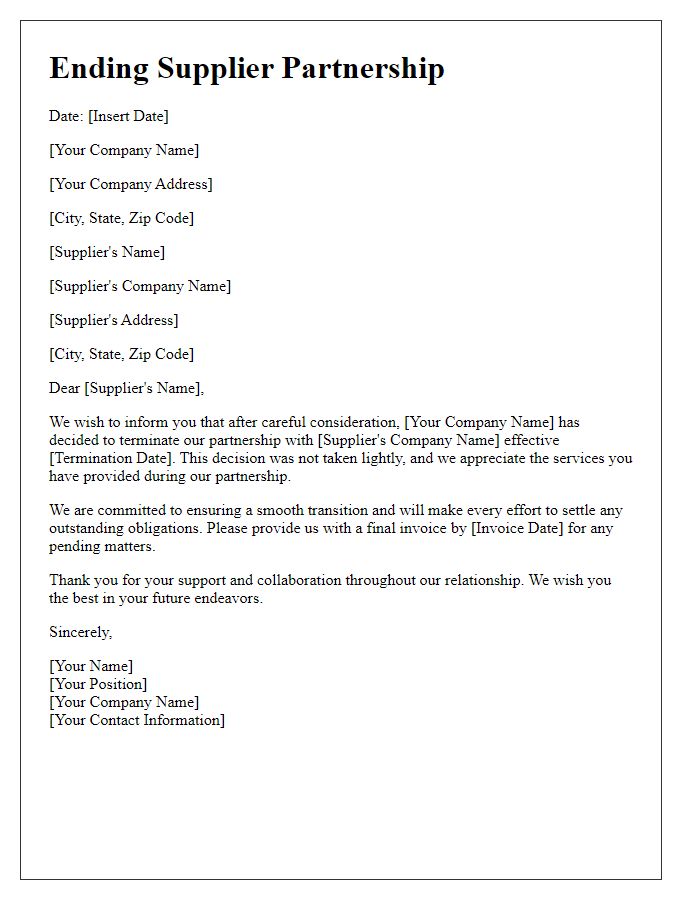
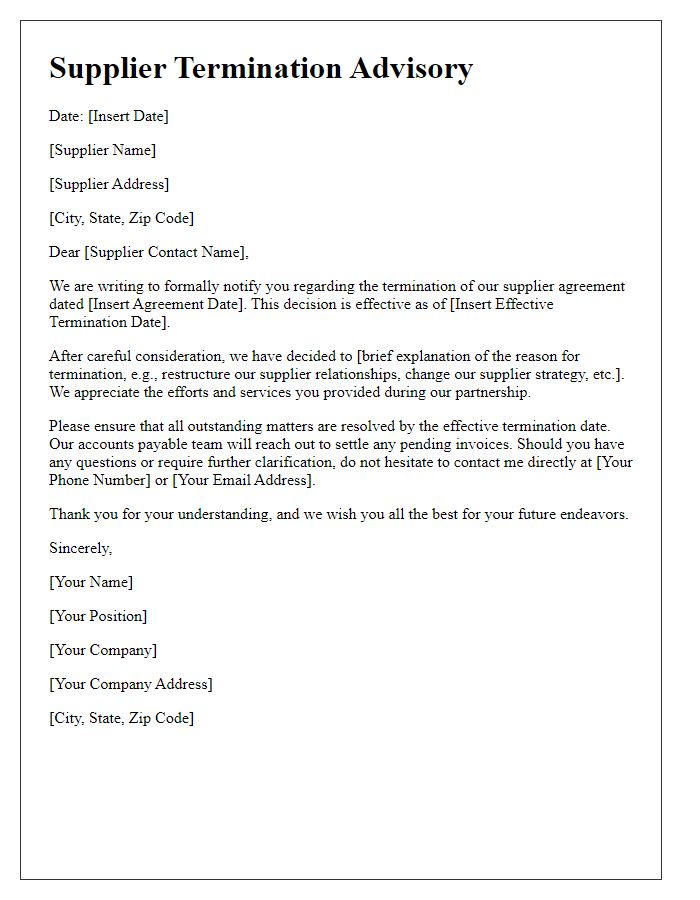

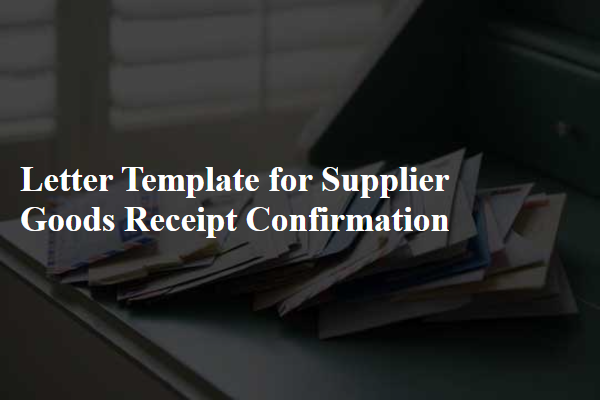
Comments